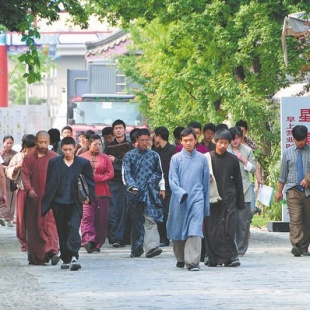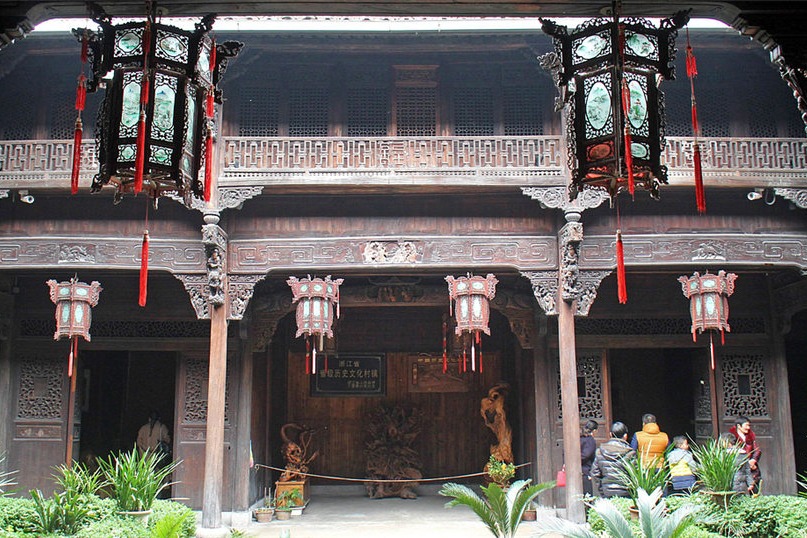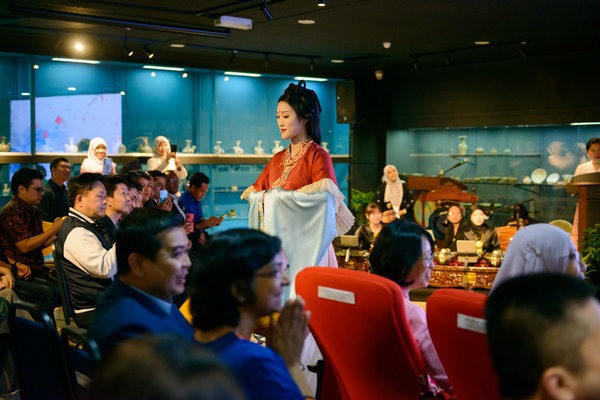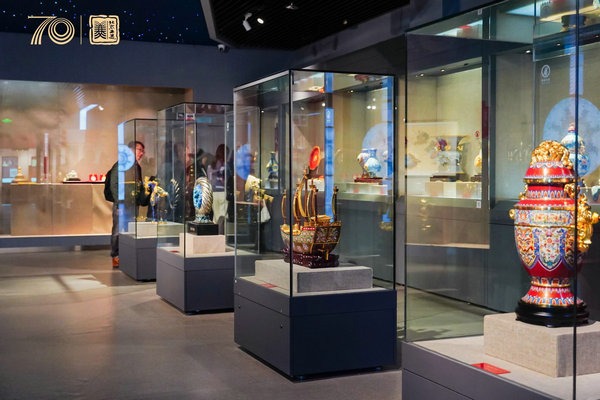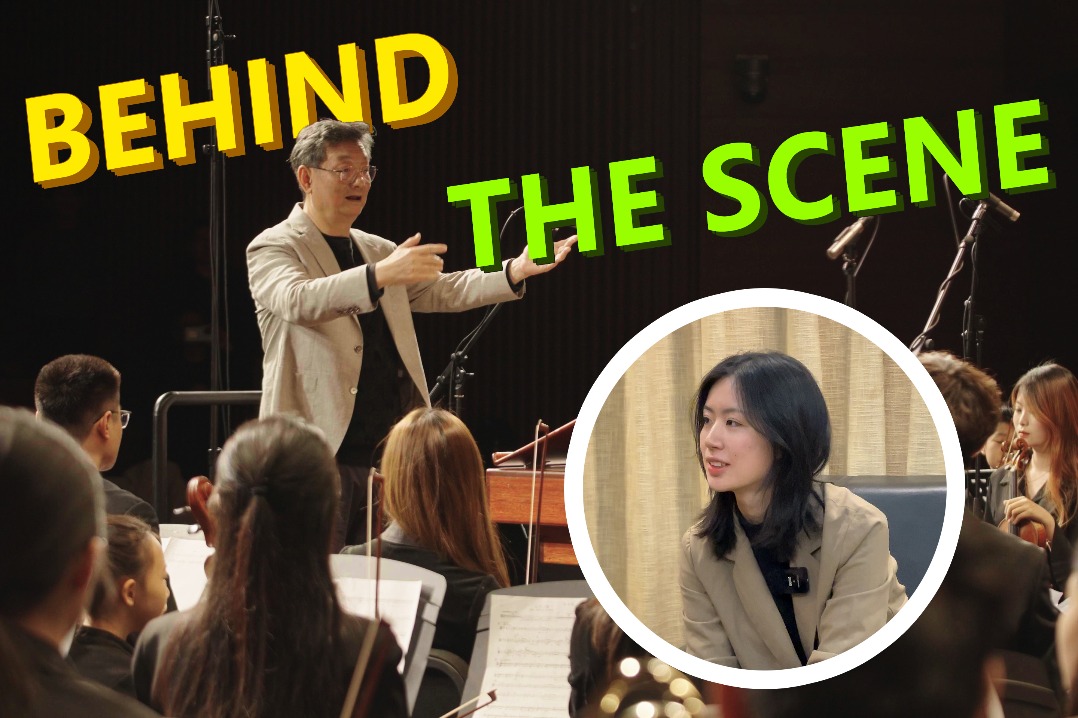A movie capital

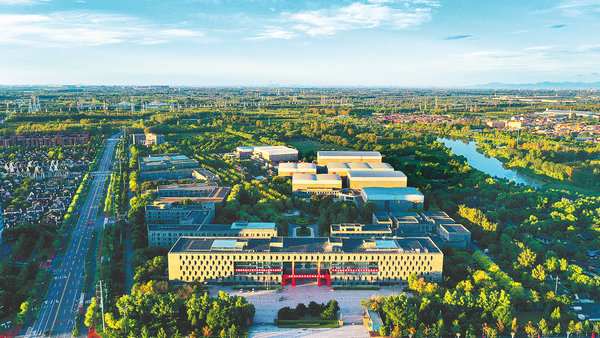
Extending its vision
While the Beijing International Film Festival has been consciously integrating technology into its events, such as establishing a virtual reality section at its Beijing Film Panorama screenings since 2018, this year, this section has been further upgraded to an extended reality section.
With 14 films adopting varied innovative formats that transcend genre boundaries, including film, theater, music and gaming, the interactions are no longer dependent on hand-held controllers, but other, varied means, such as eye or hand tracking, reflecting a transformation from "motion picture" to "motion capture".
One of these screenings is an interactive game called Before Your Eyes, in which the viewer sets off on a journey back in time and must flick through memories, piecing together the story of the protagonist.
By looking in different directions and blinking, the viewer can manipulate objects in the virtual world, such as turning the pages of a book, painting, playing the piano or jumping through time and space in the, literal, twinkling of an eye.
William Feng, head of Greater China operations at the Motion Picture Association, says that the US-based association has been actively collaborating with the film festival over the years, with the vision of providing more quality content for film enthusiasts and promoting the development of the film industry.
"From the aspect of XR and AI technology, I have observed substantial advancements. For content creators, there is much room for imagination in how to produce experiential content that can better present cultural elements and boost the progress of cultural tourism," Feng says.
This year, the 13th Beijing International Film Festival is the first international film festival in China to fully resume on-site events, hosting more than 300 in total, including the opening and closing ceremonies, the Beijing Film Panorama screenings, as well as forums and the Film Carnival.
"It is safe to say that a majority of Chinese film production companies and creative talent are based in Beijing, which means Beijing has the advantages to produce excellent film and television content that tells Chinese stories to the world," Feng says.
"In recent years the Beijing government has built the Beijing International Film Festival into a great platform for international cinematic exchanges, in terms of producing content, showcasing Chinese storytelling and promoting in-person cultural exchange."
Huo Zhijing, deputy head of Beijing Publicity Department and head of the Beijing Film Administration, expresses a similar view that Beijing, as a national cultural center, has concentrated and comprehensive film industry resources, including production and marketing companies, creative talent and film academies.
Beijing is also one of the most important markets in the Chinese film industry, according to Huo. Last year, Beijing's box office sales ranked first among Chinese cities.
This year, apart from the China Film Capital Development Forum, a variety of forums and master classes have been hosted for film practitioners and scholars from different cultural backgrounds to share their experience, and for young emerging filmmakers to enrich their vision.
"The film festival has played an important role in supporting the development of Beijing's film industry, enhancing the capital's image and promoting its construction as a national cultural center," Huo says.
In the future, Beijing will continue to leverage its advantages in culture and technology, gather resources, build platforms, optimize policies and refine services, in order to create excellent cinematic works and contribute to the innovation and dialogue of the international film industry, she adds.
Xu Fan contributed to this story.


